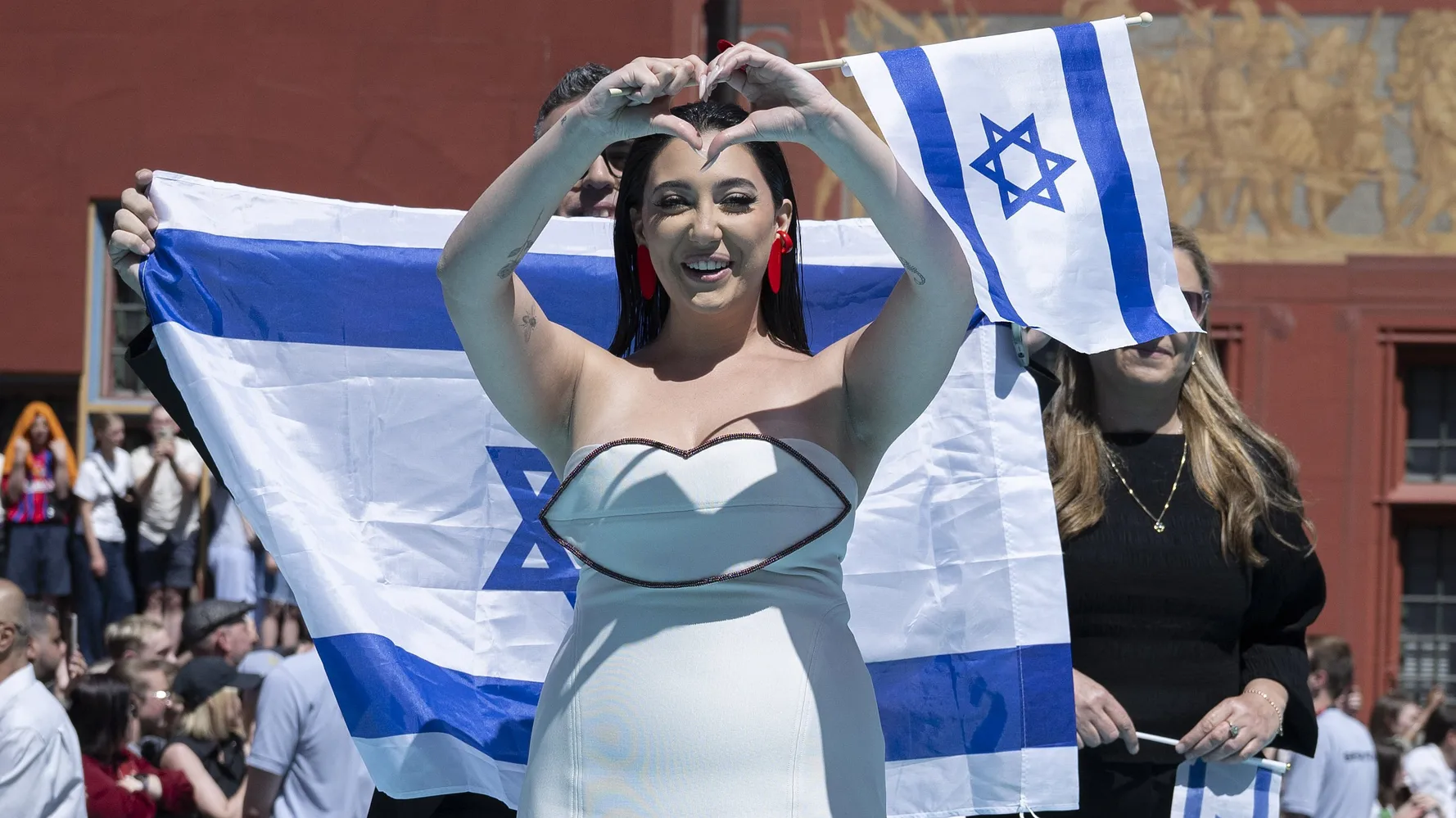By Daniel Welsh
Eurovision organisers have confirmed that discussions were held with its participating broadcasters this week about whether Israel should remain part of the competition moving forward.
Israel’s involvement in Eurovision has long been a controversial issue due to the political situation in the Middle East.
However, in the last few years, some fans have been calling for Israel’s expulsion from the competition due to the ongoing conflict in Gaza.
In the lead-up to this year’s event, many public figures associated with the contest – including then-reigning winner Nemo from Switzerland – urged organisers to ban Israel from Eurovision, similar to how Russia has been excluded since its invasion of Ukraine in 2022.
National broadcasters for Iceland, Ireland, Slovenia and Spain have all raised questions about Israel’s participation in Eurovision in the last few months. The Palestine-led BDS movement has also called for a boycott of the competition for the last two years.
Earlier this week, the European Broadcasting Union (EBU) held a meeting with its participating national broadcasters in London, to discuss several issues relating to the Eurovision Song Contest, including whether Israel should be invited back in 2026.
A statement released on Thursday said: “At today’s EBU General Assembly, Members held an open and constructive discussion on the Eurovision Song Contest (ESC) and the increasingly complex global context in which it takes place.
“The Assembly was a chance to celebrate the success of ESC 2025 – not just in terms of its record-breaking reach and engagement but in terms of its cultural resonance and ability to foster inclusivity, creativity, and a sense of belonging on a world stage.
“But of course, despite its extraordinary success, the Eurovision Song Contest, like many other events, is not immune to the pressures of global politics. Questions around participation have become increasingly sensitive and multifaceted, and our Members hold a wide range of perspectives on these issues which they were able to express in detail today.”
The statement continued: “Members had a constructive exchange of views. There was a shared understanding that this is an unprecedentedly complex situation and there is a wide diversity of opinions.
“Members also expressed their support for the work of the Israeli public broadcaster Kan and its independence, noting the pressure it is repeatedly experiencing from the Israeli government.”
“To help us navigate the current landscape, a former senior TV executive has now been invited to lead a structured and in-depth dialogue with our Member broadcasters in the coming weeks,” the EBU’s spokesperson concluded. “They will engage with Directors General and other stakeholders to gather insights on how we manage participation, geopolitical tensions, and how other organisations have approached similar challenges. They will report back with recommendations this autumn.”
According to the English-language Israeli news site Ynet, the debate on Thursday lasted around 90 minutes, with Austria, Germany and Switzerland’s broadcasters being the only ones to vocally back Israel’s participation next year.
It was also claimed that the BBC had “called to avoid a vote” on the matter, and “instead supported further dialogue”. In the end, no vote took place, although so-called EBU “sources” apparently told Ynet that “further discussions will be inevitable” if the war continues.
Eurovision previously said: “We understand the concerns and deeply held views around the current conflict in the Middle East.
“The EBU is not immune to global events but, together with our members, it is our role to ensure the Contest remains – at its heart – a universal event that promotes connections, diversity and inclusion through music.
“We all aspire to keep the Eurovision Song Contest positive and inclusive and aspire to show the world as it could be, rather than how it necessarily is.”
They added: “As a reminder, the EBU is an association of public service broadcasters, not governments, who are all eligible to participate in the Eurovision Song Contest every year if they meet the requisite requirements. It is not our role to make comparisons between conflicts.”
